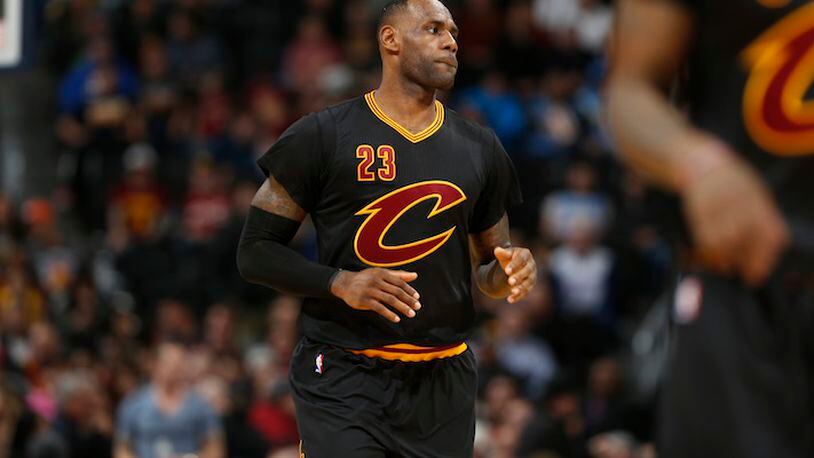So it's understandable that many were disappointed with James's response when asked about the grand jury decision on Tuesday night, telling ESPN's Dave McMenamin, "I haven't really been on top of this issue," and that he "doesn't really have enough knowledge" to comment on it. That seems rather at odds with his past statements and demonstrated desire to be part of a broader conversation.
What's changed? The cynic would point out the record- breaking lifetime contract James signed with Nike earlier this month, estimated at more than half a billion dollars. But James has always had much to lose. As ESPN's Bomani Jones noted, it would have been less disingenuous if he just gave a generic "no comment" answer signaling he simply didn't want to wade into the controversy, even if he's swum in those waters before.
The thirst for a more satisfying response from James stems from his position as the best basketball player on the planet, but also as Cleveland's prodigal son. The Rice incident occurred in the city to which he proclaimed last year, "I'm coming home." Rice's supporters and fellow Ohioans simply want an acknowledgment from their most famous neighbor, who grew up black in northeast Ohio, that he understands their pain.
And yet, it's unfair to place that burden squarely on James's shoulders. This is a city that, as history professor Lou Moore noted, boasted such activist athletes as Jesse Owens and Jim Brown, who forged their own path in the civil rights movement. James doesn't necessarily need to follow the same path -- his foundation, for example, has pledged to spend close to $42 million to send more than a thousand local kids to college. Not every activist athlete can be Muhammad Ali.
Simply put, this is bigger than one man -- even the King. As BuzzFeed's Joel D. Anderson put it, "It'd be nice if people would -- every now and again -- ask those questions of, say, Kevin Love or Dan Gilbert," references to the team's white star and its owner. His tweets reminded me of when we were down in Baltimore in April, for the no-fans Orioles game during the Freddie Gray protests. After the game, played in front of an empty stadium as National Guard troops patrolled the streets, we watched a young black man ask manager Buck Showalter if he had any advice for Baltimore's black youth. Showalter replied, "I've never been black," and spoke about the potential for the city to rally around the peaceful protests. It was a remarkable moment that seemed to demonstrate the impact of the social equality movement in a way James simply responding to a Twitter hashtag wouldn't.
Love and Gilbert and Showalter might not represent the black community, but it's counter to the entire purpose of the broader Black Lives Matter movement to place that responsibility solely in the hands of one famous black athlete. James isn't the one who needs convincing that black lives do, in fact, matter. His choosing to protest the Rice decision would certainly be a potent statement, but its impact is lessened if it seems coerced. As the New Republic's Jamil Smith messaged me, the power of the University of Missouri protests this fall came from the fact that it was the football players themselves who banded together and decided to boycott games. James would better serve Black Lives Matter "behind the scenes ... potentially with other players," Smith wrote, without giving the movement's frenzied critics any reason to doubt his motivations or paint it as a PR play.
What would James sitting out -- entirely of his own accord -- actually accomplish? It would be a demonstration of leadership and representation from the most visible black Ohioan in the country. That's significant -- the power of Derrick Rose wearing an "I Can't Breathe" T-shirt was in the message it sent to Chicago's poor, black youth that they mattered, from someone who was once one of them.
At the end of the day, however, nobody can say it's necessary that James take a stand -- not in the way it's necessary for, say, the Justice Department to take a stand. Without tangible reform in police behavior, any gesture by James could end up feeling as unsatisfying as his answer to the Tamir Rice question.
About the Author
